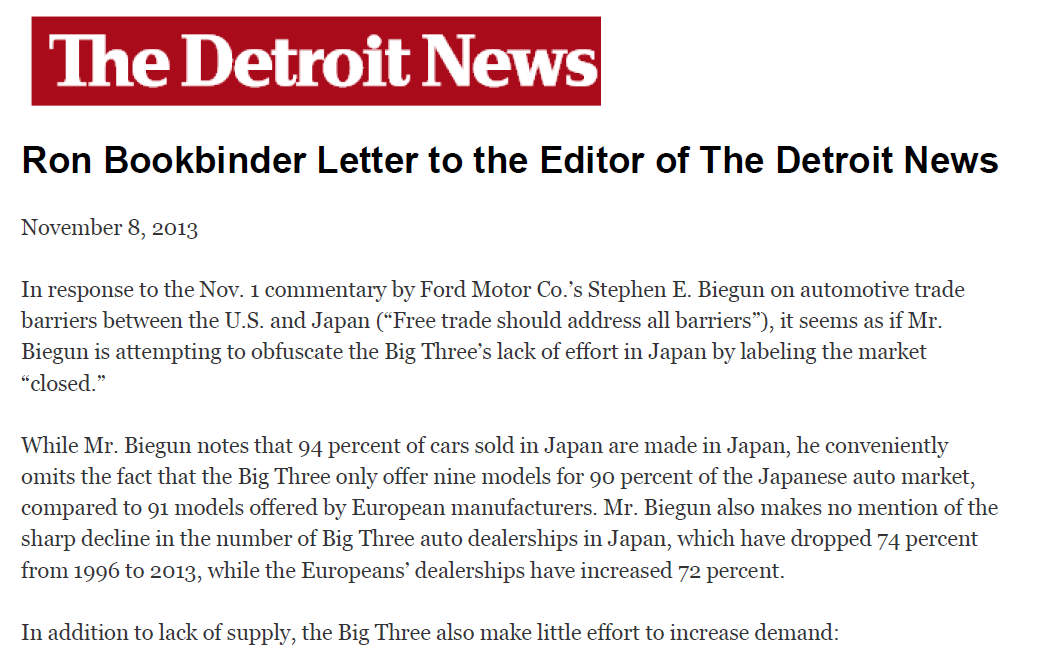November 8, 2013
In response to the Nov. 1 commentary by Ford Motor Co.’s Stephen E. Biegun on automotive trade barriers between the U.S. and Japan (“Free trade should address all barriers”), it seems as if Mr. Biegun is attempting to obfuscate the Big Three’s lack of effort in Japan by labeling the market “closed.”
While Mr. Biegun notes that 94 percent of cars sold in Japan are made in Japan, he conveniently omits the fact that the Big Three only offer nine models for 90 percent of the Japanese auto market, compared to 91 models offered by European manufacturers. Mr. Biegun also makes no mention of the sharp decline in the number of Big Three auto dealerships in Japan, which have dropped 74 percent from 1996 to 2013, while the Europeans’ dealerships have increased 72 percent.
In addition to lack of supply, the Big Three also make little effort to increase demand:
1. They have not taken advantage of the Japanese government’s increase from 2,000 to 5,000 imported vehicles per vehicle type under the Preferential Handling Procedure’s simplified and expedited certification procedures for safety and emissions standards.
2. From August 2008 to July 2013, four European automakers invested 14 times more on advertising in Japan than the Big Three combined.
Mr. Biegun conveniently ignores the Big Three’s record of passing up opportunities to engage and compete in the Japanese auto market. For all members of the Trans-Pacific Partnership negotiations, there is a great opportunity for free and fair trade, for those willing and ready to compete.
Ron Bookbinder, General Director, Japan Automobile Manufacturers Association, Washington, D.C.
Original Source: The Detroit News
Click to view PDF


